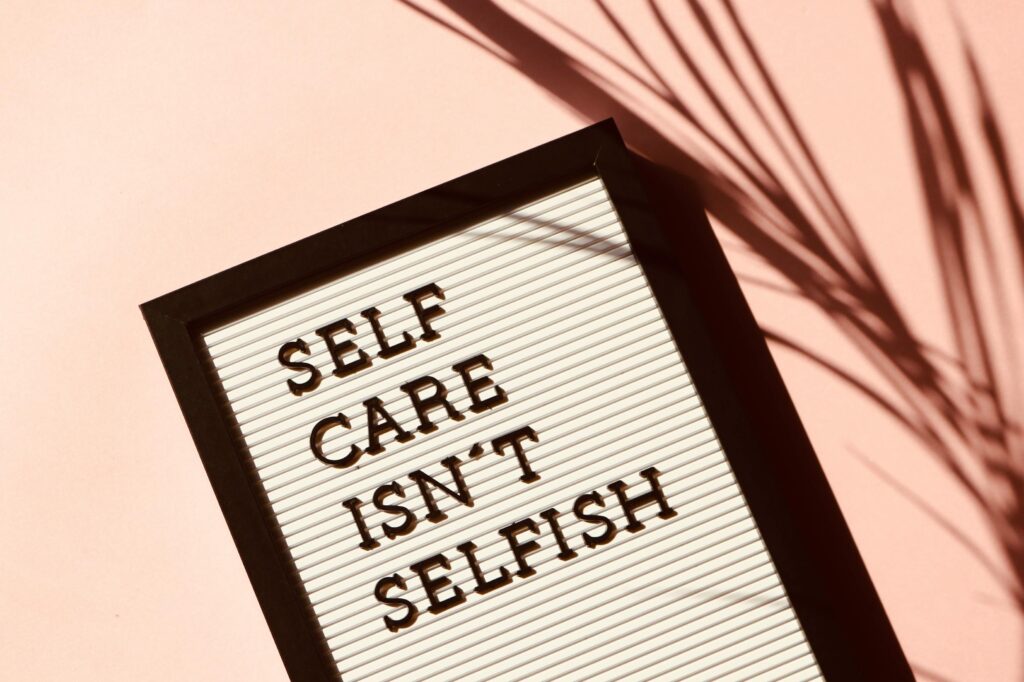PTSD
Understanding Post-Traumatic Stress Disorder (PTSD)
Post-Traumatic Stress Disorder (PTSD) is a mental health condition that can develop after experiencing or witnessing a traumatic event. These events may include serious accidents, natural disasters, assault, war, abuse, or any situation that causes intense fear, helplessness, or horror. While it’s normal to feel shaken after trauma, PTSD occurs when those feelings don’t fade and instead worsen over time, interfering with daily life.
What Are the Symptoms of PTSD?
PTSD symptoms are generally grouped into four categories:
1. Intrusion (Re-experiencing)
Flashbacks or vivid memories of the trauma
Nightmares
Intense emotional or physical distress when reminded of the event
2. Avoidance
Avoiding places, people, or situations that bring back memories
Avoiding talking or thinking about the trauma
3. Negative Changes in Mood and Thinking
Feelings of hopelessness or emotional numbness
Memory issues, especially about the traumatic event
Persistent negative thoughts or self-blame
Loss of interest in previously enjoyed activities
4. Hyperarousal (Reactivity)
Being easily startled or constantly on edge
Trouble sleeping or concentrating
Irritability or angry outbursts
Symptoms may appear soon after the event or be delayed for months or even years.
Who Can Develop PTSD?
Anyone can develop PTSD, regardless of age, gender, or background. Risk factors include:
Experiencing intense or long-lasting trauma
Lack of support after the event
A history of mental health issues
Previous exposure to trauma
PTSD can affect survivors, witnesses, and even loved ones of those directly impacted.
Diagnosis and Treatment
PTSD is diagnosed by a licensed mental health professional through interviews and standardized assessments. A diagnosis typically requires symptoms to last more than a month and cause significant impairment.
Effective Treatment Options Include:
Trauma-Focused Therapy – such as Cognitive Processing Therapy (CPT), Prolonged Exposure (PE), and EMDR (Eye Movement Desensitization and Reprocessing)
Medication – including antidepressants like SSRIs to help regulate mood and anxiety
Support Groups – offering community, understanding, and shared healing
Lifestyle Support – including exercise, mindfulness, and healthy sleep routines
Early intervention and a supportive environment can greatly improve recovery outcomes.
Living with PTSD
PTSD is not a sign of weakness—it is a response to overwhelming stress. With the right treatment and support, recovery is possible. Many individuals find healing through therapy, self-care, community, and time.
Addiction

Our blog features a wealth of high-quality, free content that covers a wide range of topics related to mental health. From mindfulness and self-care practices to stress management techniques and emotional well-being, our articles provide you with practical advice, inspiring insights, and actionable steps to enhance your overall quality of life.
Addiction

Our blog features a wealth of high-quality, free content that covers a wide range of topics related to mental health. From mindfulness and self-care practices to stress management techniques and emotional well-being, our articles provide you with practical advice, inspiring insights, and actionable steps to enhance your overall quality of life.
Addiction

Our blog features a wealth of high-quality, free content that covers a wide range of topics related to mental health. From mindfulness and self-care practices to stress management techniques and emotional well-being, our articles provide you with practical advice, inspiring insights, and actionable steps to enhance your overall quality of life.
Addiction

Our blog features a wealth of high-quality, free content that covers a wide range of topics related to mental health. From mindfulness and self-care practices to stress management techniques and emotional well-being, our articles provide you with practical advice, inspiring insights, and actionable steps to enhance your overall quality of life.
Addiction

Our blog features a wealth of high-quality, free content that covers a wide range of topics related to mental health. From mindfulness and self-care practices to stress management techniques and emotional well-being, our articles provide you with practical advice, inspiring insights, and actionable steps to enhance your overall quality of life.
Addiction

Our blog features a wealth of high-quality, free content that covers a wide range of topics related to mental health. From mindfulness and self-care practices to stress management techniques and emotional well-being, our articles provide you with practical advice, inspiring insights, and actionable steps to enhance your overall quality of life.
Addiction

Our blog features a wealth of high-quality, free content that covers a wide range of topics related to mental health. From mindfulness and self-care practices to stress management techniques and emotional well-being, our articles provide you with practical advice, inspiring insights, and actionable steps to enhance your overall quality of life.
Addiction

Our blog features a wealth of high-quality, free content that covers a wide range of topics related to mental health. From mindfulness and self-care practices to stress management techniques and emotional well-being, our articles provide you with practical advice, inspiring insights, and actionable steps to enhance your overall quality of life.
Addiction

Our blog features a wealth of high-quality, free content that covers a wide range of topics related to mental health. From mindfulness and self-care practices to stress management techniques and emotional well-being, our articles provide you with practical advice, inspiring insights, and actionable steps to enhance your overall quality of life.
Addiction

Our blog features a wealth of high-quality, free content that covers a wide range of topics related to mental health. From mindfulness and self-care practices to stress management techniques and emotional well-being, our articles provide you with practical advice, inspiring insights, and actionable steps to enhance your overall quality of life.
Addiction

Our blog features a wealth of high-quality, free content that covers a wide range of topics related to mental health. From mindfulness and self-care practices to stress management techniques and emotional well-being, our articles provide you with practical advice, inspiring insights, and actionable steps to enhance your overall quality of life.
Addiction

Our blog features a wealth of high-quality, free content that covers a wide range of topics related to mental health. From mindfulness and self-care practices to stress management techniques and emotional well-being, our articles provide you with practical advice, inspiring insights, and actionable steps to enhance your overall quality of life.
Addiction

Our blog features a wealth of high-quality, free content that covers a wide range of topics related to mental health. From mindfulness and self-care practices to stress management techniques and emotional well-being, our articles provide you with practical advice, inspiring insights, and actionable steps to enhance your overall quality of life.
Addiction

Our blog features a wealth of high-quality, free content that covers a wide range of topics related to mental health. From mindfulness and self-care practices to stress management techniques and emotional well-being, our articles provide you with practical advice, inspiring insights, and actionable steps to enhance your overall quality of life.
Addiction

Our blog features a wealth of high-quality, free content that covers a wide range of topics related to mental health. From mindfulness and self-care practices to stress management techniques and emotional well-being, our articles provide you with practical advice, inspiring insights, and actionable steps to enhance your overall quality of life.
Addiction

Our blog features a wealth of high-quality, free content that covers a wide range of topics related to mental health. From mindfulness and self-care practices to stress management techniques and emotional well-being, our articles provide you with practical advice, inspiring insights, and actionable steps to enhance your overall quality of life.
Addiction

Our blog features a wealth of high-quality, free content that covers a wide range of topics related to mental health. From mindfulness and self-care practices to stress management techniques and emotional well-being, our articles provide you with practical advice, inspiring insights, and actionable steps to enhance your overall quality of life.
Addiction

Our blog features a wealth of high-quality, free content that covers a wide range of topics related to mental health. From mindfulness and self-care practices to stress management techniques and emotional well-being, our articles provide you with practical advice, inspiring insights, and actionable steps to enhance your overall quality of life.
Addiction

Our blog features a wealth of high-quality, free content that covers a wide range of topics related to mental health. From mindfulness and self-care practices to stress management techniques and emotional well-being, our articles provide you with practical advice, inspiring insights, and actionable steps to enhance your overall quality of life.
Addiction

Our blog features a wealth of high-quality, free content that covers a wide range of topics related to mental health. From mindfulness and self-care practices to stress management techniques and emotional well-being, our articles provide you with practical advice, inspiring insights, and actionable steps to enhance your overall quality of life.Spa Mobile
Soccer
Understanding PTSD
PTSD
Understanding Trauma and PTSD
FREQUENTLY ASKED QUESTIONS
PTSD, or Post-Traumatic Stress Disorder, is a mental health condition that can develop after a person experiences or witnesses a traumatic event. It involves ongoing symptoms such as flashbacks, nightmares, emotional distress, and avoidance of reminders of the trauma.
Any event that is deeply distressing or life-threatening can lead to PTSD. Common causes include car accidents, physical or sexual assault, combat exposure, natural disasters, abuse, or sudden loss of a loved one.
It’s normal to feel shaken or distressed after a traumatic event, but for most people, these feelings lessen over time. PTSD is diagnosed when symptoms last longer than a month and interfere with daily life, work, or relationships.
Yes, children and teenagers can develop PTSD. Symptoms may show up differently in younger people, such as through nightmares, behavioral issues, or trouble with trust and emotions.
PTSD is highly treatable. Common treatments include Cognitive Behavioral Therapy (CBT), Exposure Therapy, EMDR (Eye Movement Desensitization and Reprocessing), and medication such as antidepressants. Many people benefit from a combination of therapy and medication.
KEY TERMS
A complex condition characterized by compulsive drug use or behavior despite harmful consequences.
Substance Use Disorder (SUD) A clinical term used to describe addiction to drugs or alcohol.
Physical or psychological reliance on a substance, often leading to withdrawal symptoms when use is reduced or stopped.
Support groups, such as Alcoholics Anonymous (AA) and Narcotics Anonymous (NA), that follow a structured, 12-step approach to recovery.
The process of overcoming addiction and maintaining a substance-free lifestyle.
The process of removing toxins from the body, often used to describe the initial stages of treatment for addiction.
The return to substance use or addictive behavior after a period of abstinence.
Physical and psychological symptoms that occur when a person stops using a substance they are dependent on.
EXPLORE ADDICTION









